RustConf 2016 Talks
Opening Keynote
by Aaron Turon and Niko Matsakis
 photo by: [@eigenrick](https://twitter.com/eigenrick)
photo by: [@eigenrick](https://twitter.com/eigenrick)
- 175 new features since 1.0
New features underway
- Specialization
- impl Trait
- The
?operator - Macro 1.1 offers custom derive
Compiler internals redesigned
- Mir in orbit
- Dynamic drop flags
- Incremental comp
- Error messages
Challenges in the Rust survey
- 1 in 4 Learning curve (First 3 weeks is rough)
- 1 in 7 More libraries
- 1 in 9 “Maturity”
- 1 in 19 IDEs
- 1 in 20 Compiler Perf
Speed and reliability are core values of rust, but for 2017, productivity should as well.
Potential areas for new/improved libs
Rust on the server
- Futures for async I/O
- Tokio for protocols
- Middleware ecosystem
Parallelism & Concurrency
- Deliver on Rust’s potential
Serialization
- Stable serde
Rust numerics/ML
- Establish foundations?
serde is pronounced serdy not serd.
Discoverability
A tricky balance:
Make it easy to find the “best”
… but allow newcomers to take root
… but incentivize the right things
Tools
- rustup
- NDK support
- Emscripten/wasm
- cargo
- Private/shared
- Build system integration
- rustfmt
- Strike team for the format
- The bike shed of bike sheds
Racer for code completion in editors.
The Illustrated Adventure Survival Guide
by Liz Baillie
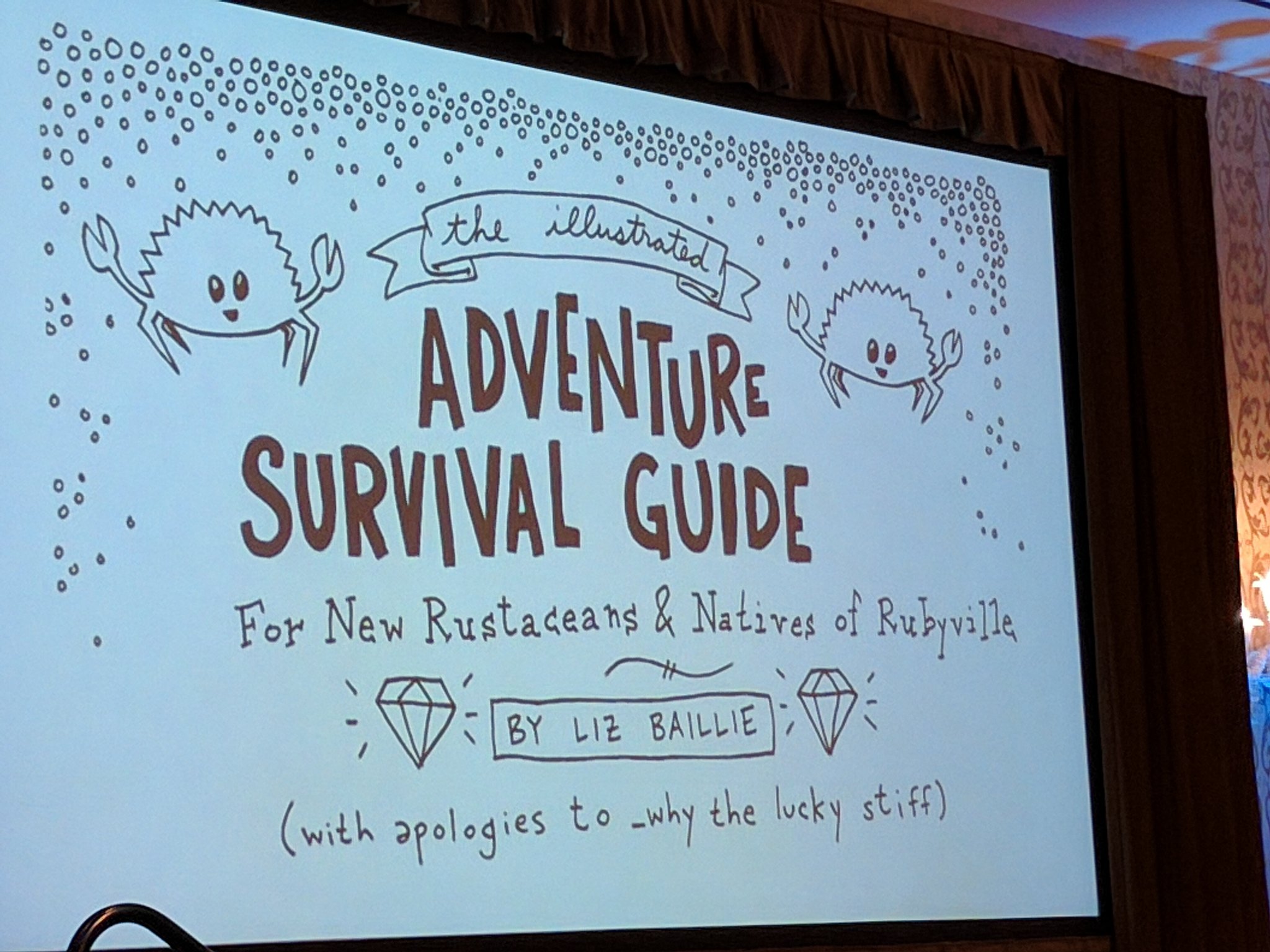 photo by [@QEDunham](https://twitter.com/QEDunham)
photo by [@QEDunham](https://twitter.com/QEDunham)
- Classes vs Traits
- Error handling
- Stack & Heap
Integrating Rust and VLC
by Geoffroy Couprie
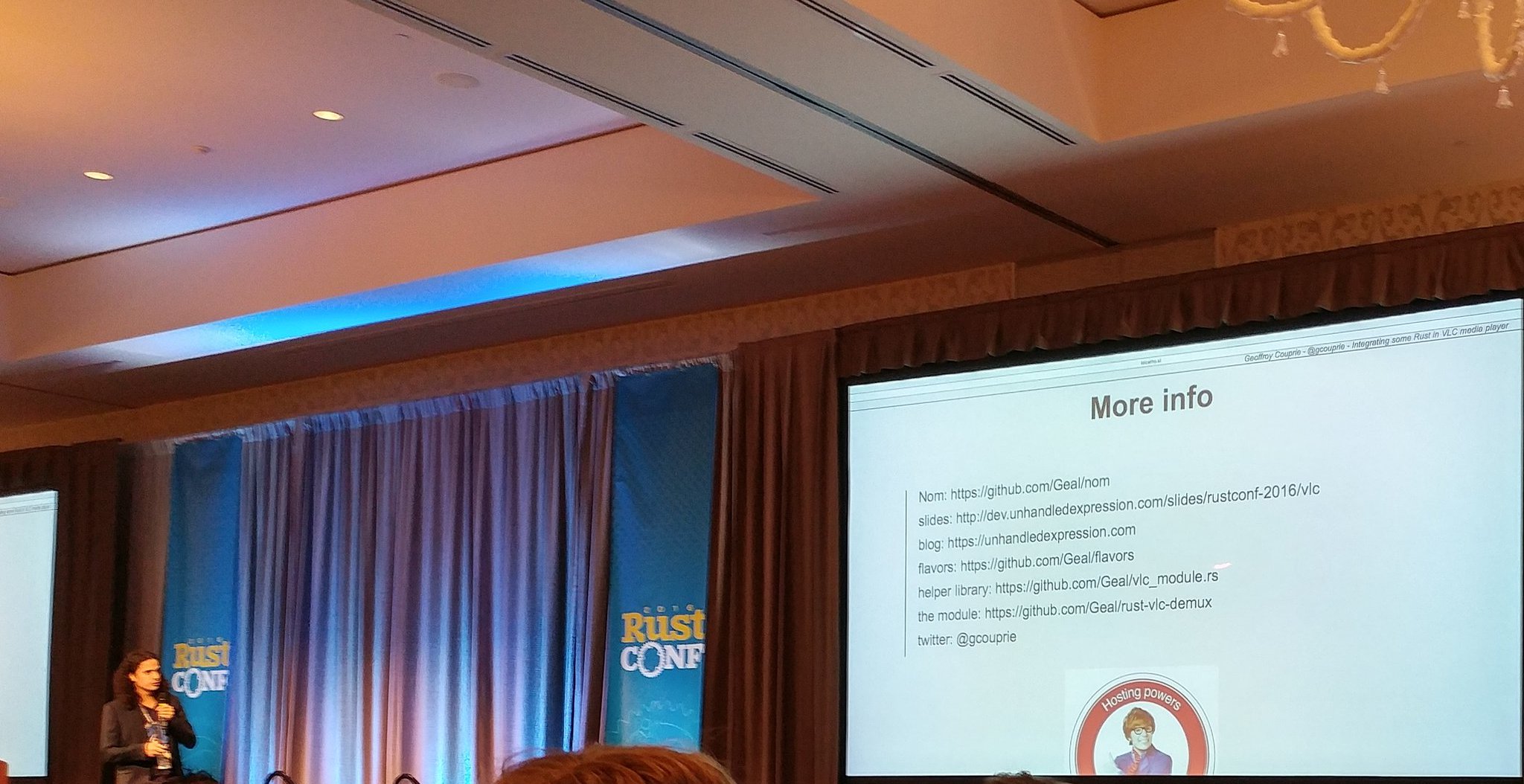 photo by [@nathanaeljones](https://twitter.com/eigenrick)
photo by [@nathanaeljones](https://twitter.com/eigenrick)
VLC has C code and is now using Rust to replace the C code.
Autotools with Rust.
The RustPlay Classifier
by Suchin Gururangan and Colin O’Brien
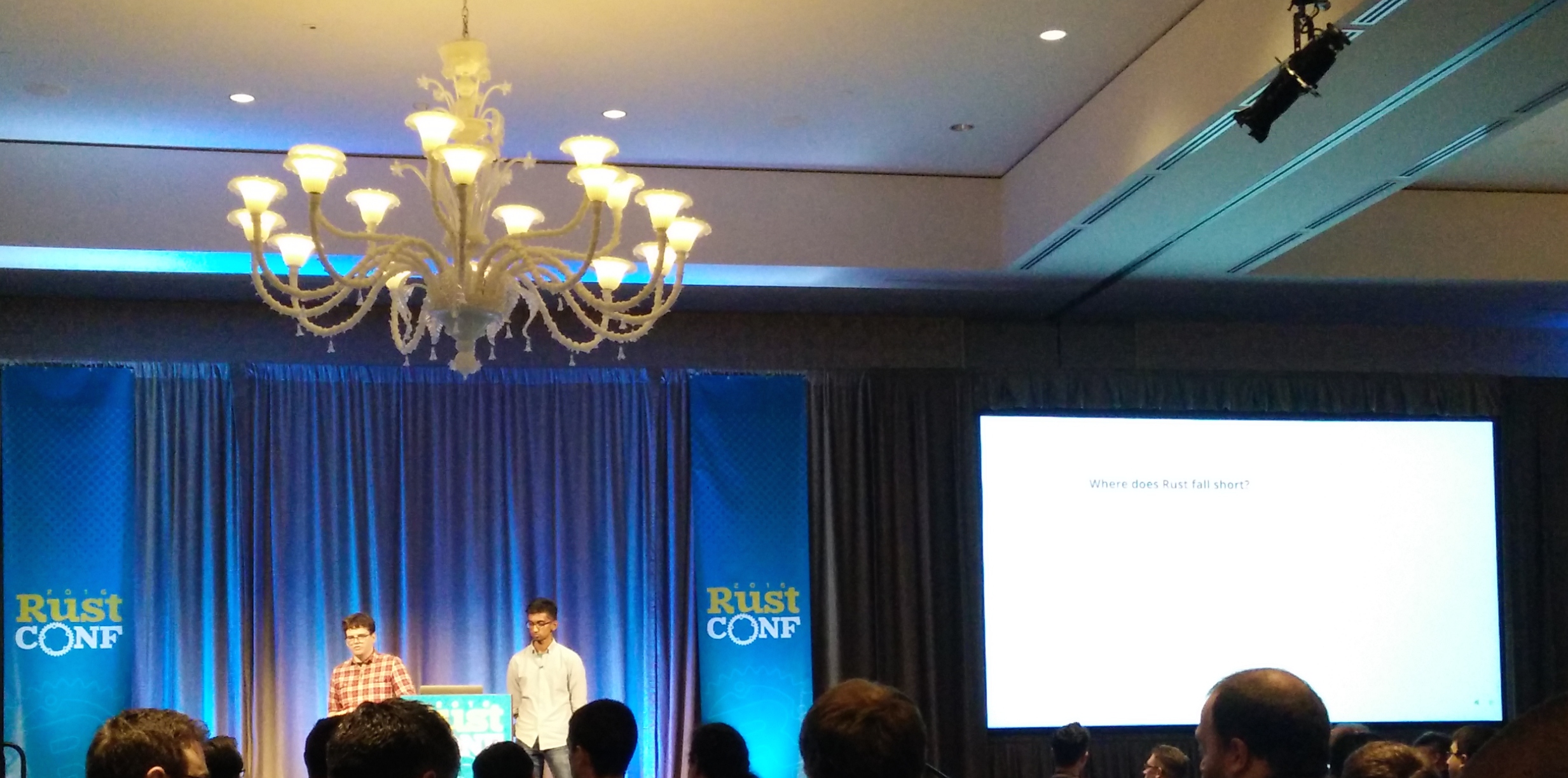
Technical Debt in Data Science
- Siloed teams
- Pipeline junkgles
- Unscalable Experiments
- …and all the normal engineering tech debt
“A mature system might end up being (at most) 5% learning code.”
Service oriented Machine Learning
- Data Collection
- Data Inventory
- Feature Extraction
- Model Generation
- Prediction
Vagga: a containerization tool without daemons
Rayon: A data parallelism library for Rust
Using Generics Effectively
by Without Boats
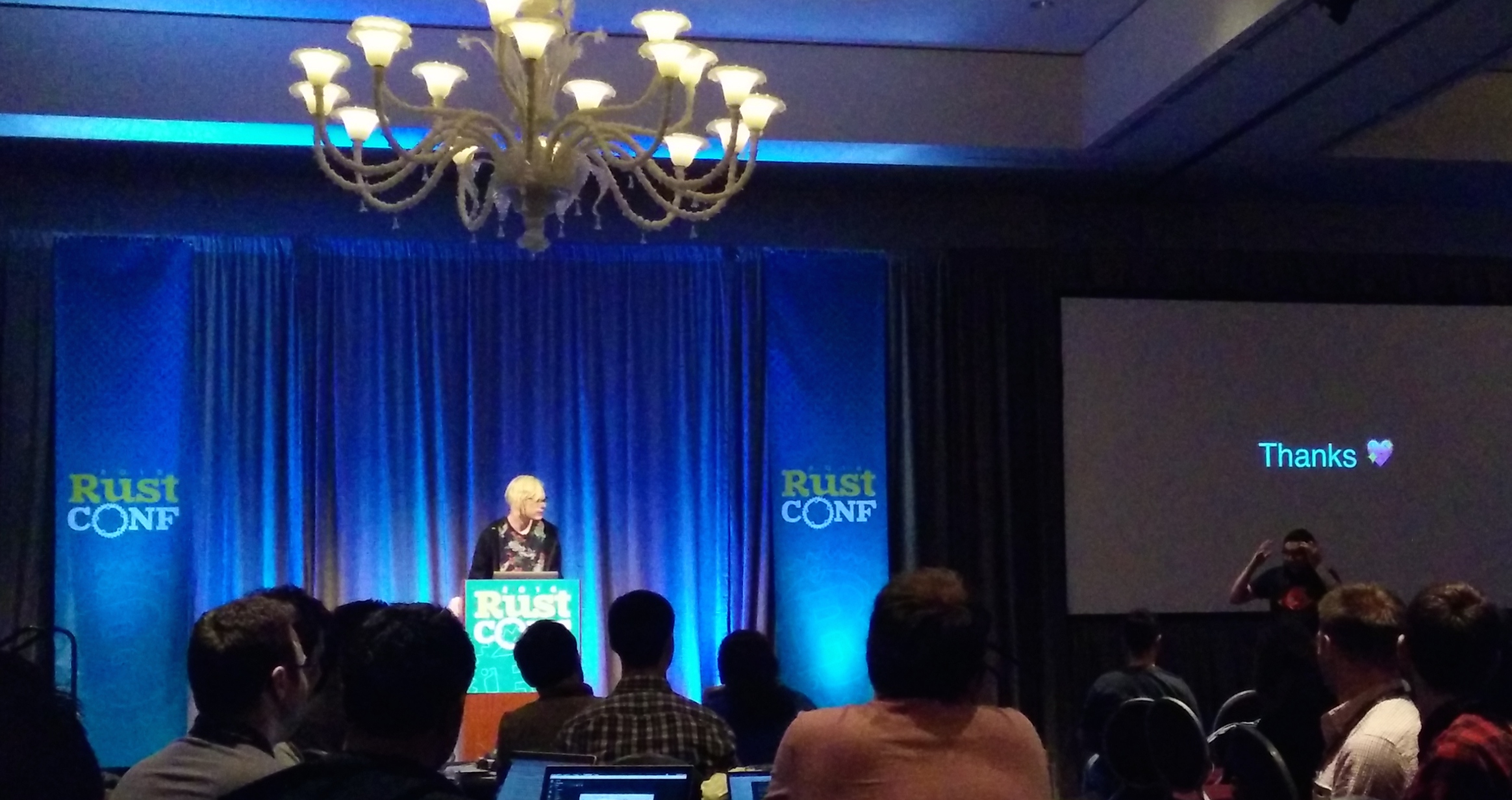
How will I know when it’s a good idea to use a Trait or an Enum?
“Design patterns are a sign your language itsn’t powerful enough.”
Patterns don’t have to be template of classes.
Back to the Futures
by Alex Crichton
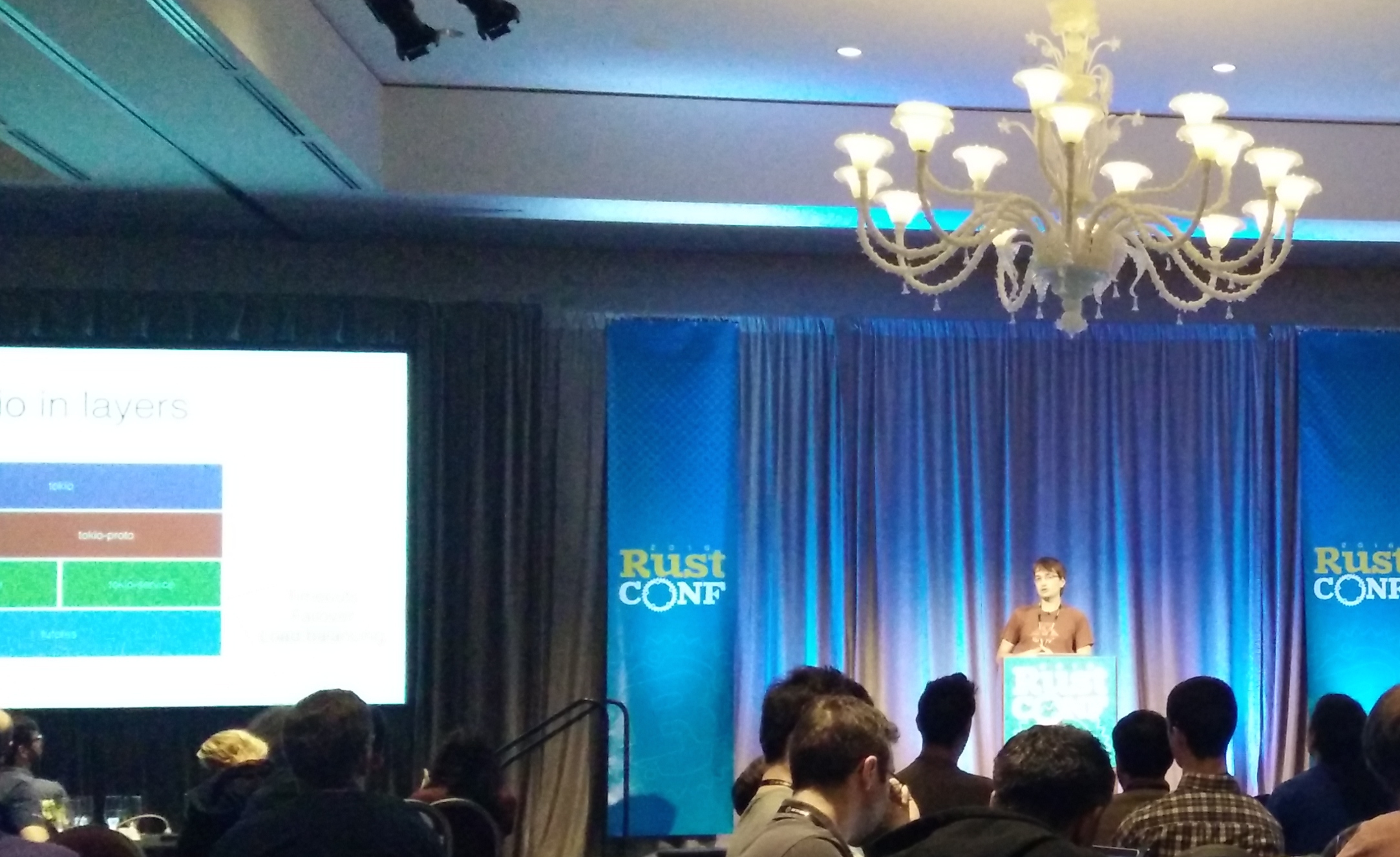
What’s a Future?
- DB query
- RPC Request
- Timeouts
- CPU Intensive Work
- Socket Readiness
The fastest server
- mio is state of the art
- Primarily using state machines
- Avoids unnecessary allocation/synchronization
- Futures must “compile down” to the same code
Zero-cost futures
- No allocations in combinators
- No synchronization in combinators
- One dynamic dispatch per event
- One allocation per connection
Tokio: Asynchronous I/O for Rust
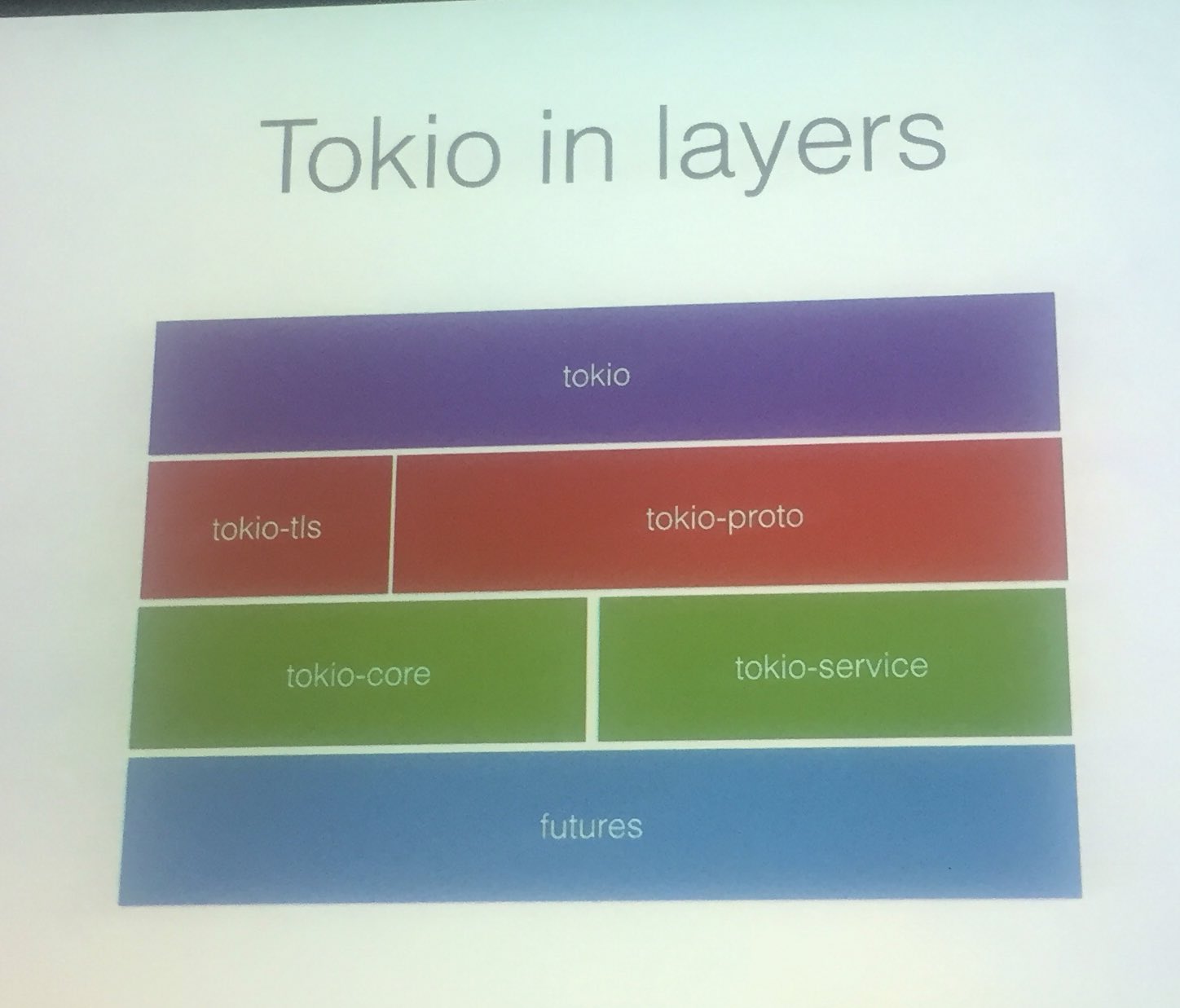
A Modern Editor in Rust
by Raph Levien
The Xi Editor: A modern editor with a backend written in Rust

Main goal: performance
How to make a fast editor:
- Use a fast language
- Exploit multicore parallelism
- Use advanced algorithms and data structures
- Ropes
- Minimal incremental algorithms
- Asynchrony
- Don’t block slow operations
Operation Transformation
- Request to plugin is async
- User may edit while plugin is thinking
- Transform results from plugin
Xi-rope internals
- Rope is a specialization of a generic tree
- Parametrized on
LeafandNodeInfo - 3 different specializations of generic tree
Rope(Leaf = String)Line breaks(Lead = vec of line breaks offsets)Rich text spans(Leaf = vec of spans; interval)
Xi-rpc today
- JSON-RPC
- Why?
- JSON implementations are fast
- An easy dep to satisfy
- Threaded design
- Separate thread blocking on input
- Inter-thread communication with channels
Arc<Mutex<>>to acquire state.
RFC: In Order to Form a More Perfect union
by Josh Triplett
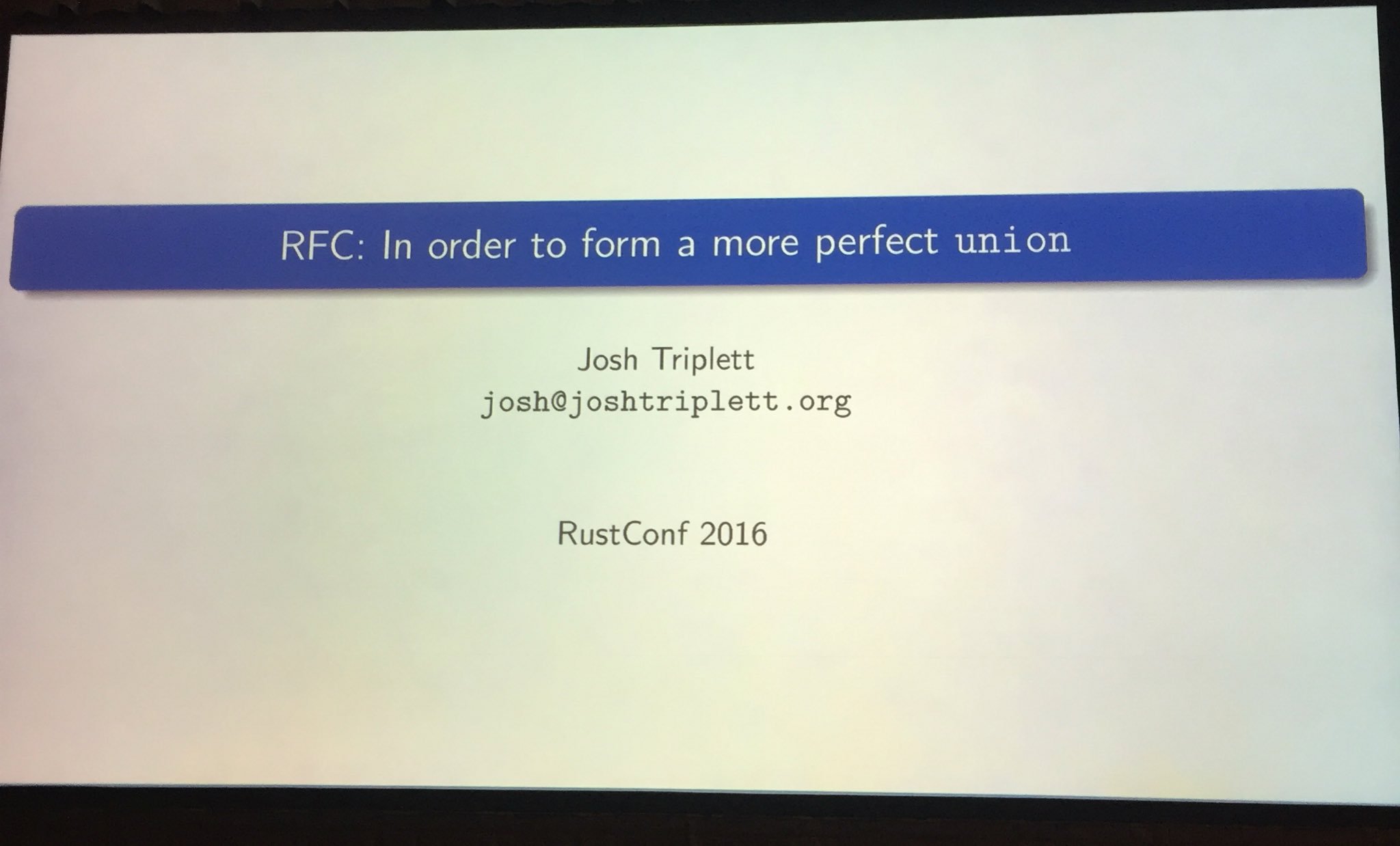
Linux Kernal Virtual Machine
/dev/kvm
Floppy drive, vm security issue.
Unions
- Multi storage variables
- Different types
- Overlapping types
Rust RFC
- Community process
- Lightweight but not to light
- Shepard
- Rust team makes approval decisions
#[repr(C)] struct
Crater takes a proposed change to the language, loads the entire cargo env
base, and checks for breakage.
Improvements through the RFC process by way of multiple person interaction.
Closing Keynote - Systems Programming with Rust
by Julia Evans
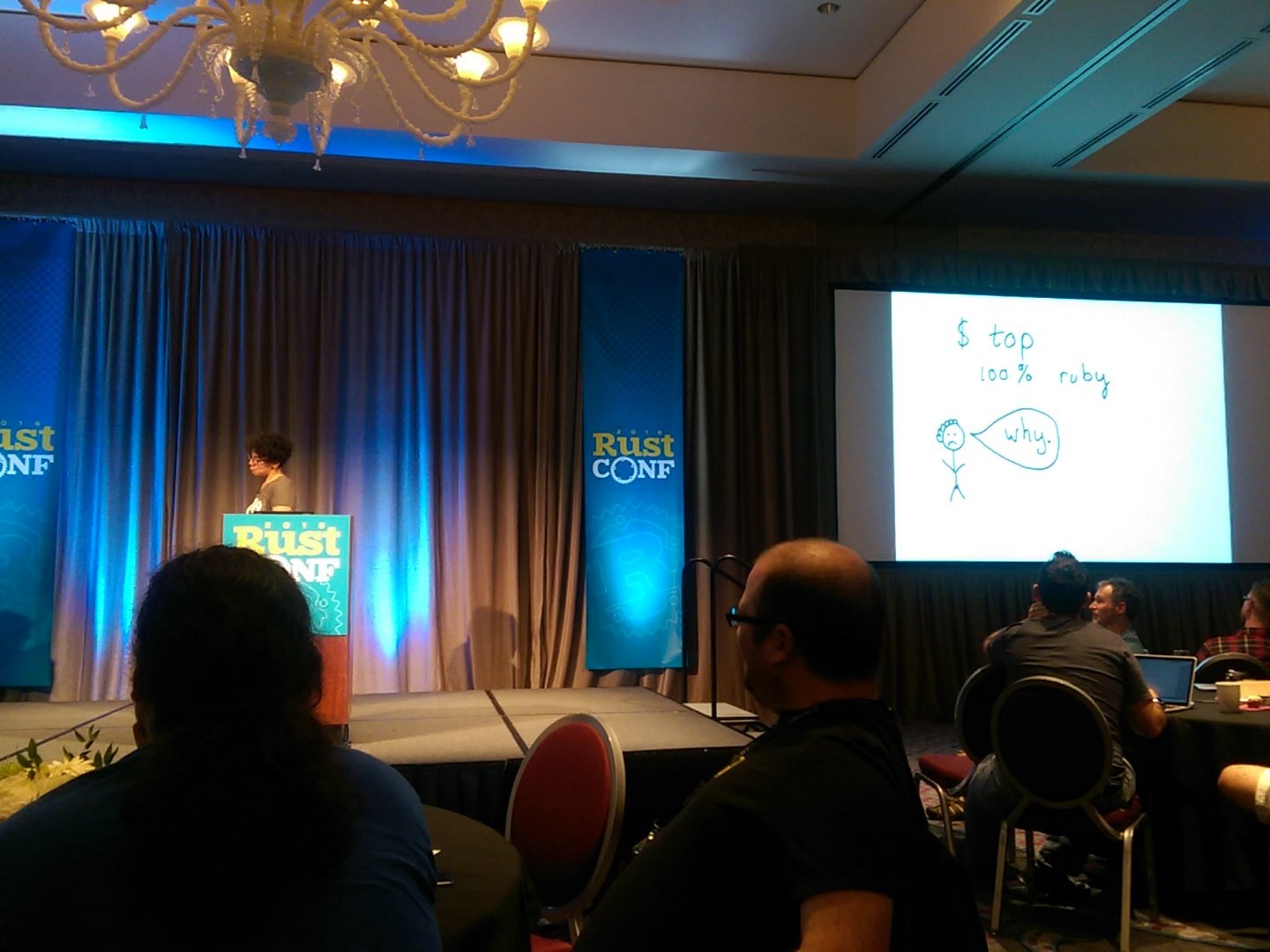 photo by [@TedMielczarek](https://twitter.com/TedMielczarek)
photo by [@TedMielczarek](https://twitter.com/TedMielczarek)
Rules of programming experiments
- it doesn’t have to be good
- it doesn’t have to work
- you have to learn something
 photo by [_lizbaillie](https://twitter.com/_lizbaillie)
photo by [_lizbaillie](https://twitter.com/_lizbaillie)
libdrawf
- no idea how it works
- terrible API
- slow
- linker problems
Gimli: A lazy, zero-copy parser for the DWARF debugging format
RustConf 2016 Conclusion
The year the Rust conferences started! The overall vibe was excellent. Everyone
was just excited to be there. For me personally the hallway track was very
different then the conferences I’m used to. I’m used to hallway chat about apps
and gems and web development. The general chatter here was system performance
which is out of my normal space. So I learned a lot. As well as sat in on conversations
I considered a little over my head.
The workshops on Friday were great as well. I participated in the Intermediate
workshop. Although I really wish I could have grabbed some pieces of both the
intermediate and advanced. I have a pretty good grasp on lifetimes, but do
frequently run in to problems with lifetimes and structs. Where as in the
intermediate I had a good concept of Traits but run into problems with generics.
So both workshops had a little something I wanted but decided to go to the intermediate
workshop and was not disapointed. Check out some of my notes.